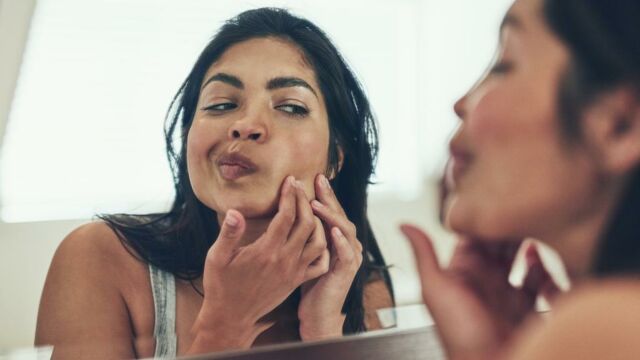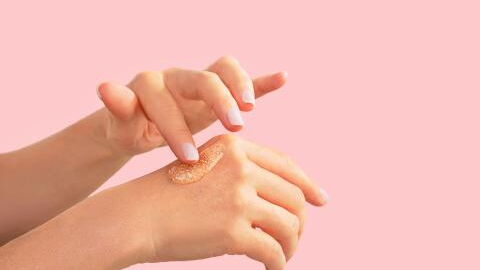If you're human, chances are you've ignored the prevalent advice to never pop your own spots. Although popping your own spots can have some unintended side effects, like scarring or spreading bacteria, simply put, not all of us have the financial means or patience to see a dermatologist on the regular.
Discover our latest podcast
So while we would never advise picking at your spots or skin (as this only makes things worse), if you've got a juicy whitehead that's just waiting to explode, here's how to pop a spot at home the safest way possible.
Before popping
Making sure that your face, hands, tools, and work area are clean is essential before popping a spot. This helps to minimise the risk of infection. So, make sure to wash your face, hands and any extraction tools you might want to use with soap and hot water, and avoid popping your spots in communal bathrooms.
During

- Cover your fingertips with some paper towel or cotton wool (if you're not using a tool).
- Put your fingers on either side of the spot. Don't place your finger pads too close or use your nails. You should be able to see the spot.
- Don't just push your fingertips together, this causes bacteria to be pushed further down into your skin.
- Instead, position your fingers at the root of the spot by gently pushing down and then at a 90-degree angle.
- Only then should you start to push upwards. If the spot is ready, it should easily start to come out.
- Repeat this action gently until all the white part of the spot has emerged
- When the liquid coming out of the spot turns pink - STOP SQUEEZING!
After
At all costs, don't squeeze until your spots bleed as this almost guarantees scarring will occur. After you've popped your spot, wash your hands again.
It is also advised to apply a cotton pad soaked in an acid-based or anti-inflammatory toner to reduce redness and prevent bacteria from spreading.
Once the initial anger has subsided, apply a small drop of facial oil to a clean fingertip and massage the spot well, as this helps to reduce the risk of scarring and promotes healing.
Sources used:
Caroline Hirons: 'CHEAT SHEET – HOW TO POP A SPOT'
American Academy of Dermatology: 'PIMPLE POPPING: WHY ONLY A DERMATOLOGIST SHOULD DO IT'















